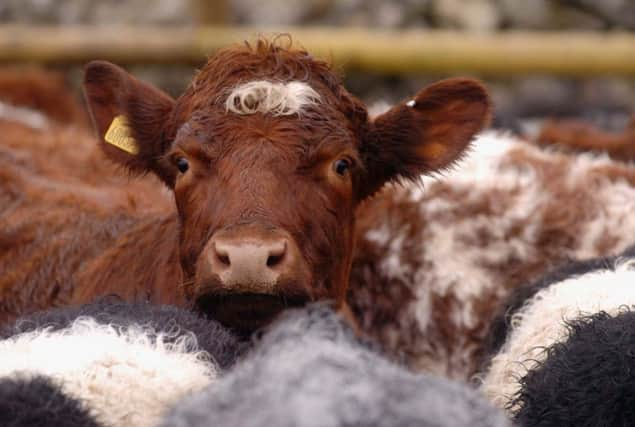Alarm bells raised as beef price continues its decline


Chris Mallon, the group’s chief executive, told Country Week that despite better prices at the start of the year, much of the optimism that early upturn generated has been replaced by growing concern and frustration, with the size of the national beef herd continuing to shrink.
The health of the beef sector will come under the spotlight this week, when, on Thursday, York Auction Centre plays host to the NBA’s spring Beef Expo.
Advertisement
Hide AdAdvertisement
Hide AdThousands of beef farmers will be in attendance at the event which will focus on looking to the future of the industry, advances in technology and the changing demands of consumers.
Mr Mallon hopes to see a better mood among his peers but admits that times are tough.
At present the deadweight cattle price is averaging between £3.15 per kg and £3.40/kg across Britain, Mr Mallon said. The comparison with the same time last year is not kind, when prices hovered around the £3.50/kg mark, and in May 2013, the average price stood at around £4/kg.
More than 100,000 breeding cows have been lost from the national herd over the last three years alone.
Advertisement
Hide AdAdvertisement
Hide Ad“The beef price has been coming back down every week for months so people are feeling really down about it,” Mr Mallon said.
“Even though there is a shortage of cattle, we are seeing the price manipulated. If you have a shortage of something and a demand for something, it makes you wonder why the price isn’t going back up.
“I think beef farmers are becoming tired of all this volatility. In January the price was quite strong and since then it has fallen off.
“It’s because of a combination of factors, the high value of the sterling and a lack of beef promotion - there is very little retail promotion of beef going on. I suspect that is because the retailers know there is a shortage of beef cattle on the ground and if they create more demand, we would see a higher price (at the farmgate).”
There are some simple answers, Mr Mallon said.
Advertisement
Hide AdAdvertisement
Hide Ad“It comes down to increased sales which might come through if we have a good summer and see an increase in sales of steaks and burgers for barbecues.
“We are losing a lot of beef farmers every year; about three per cent of our beef cattle a year, and we should be concerned about food security as a nation. In a world where the population is growing there is high demand for good quality red meat as a source of protein, yet we seem to be letting those people who produce it to go out of business. There needs to be a realisation among processors that they need to pay people enough to go on producing beef, if not they are going to find something else to do with their land.”
Last month, Charles Sercombe, livestock board chairman at the National Farmers’ Union, blamed falling beef prices on “lacklustre consumer demand and the challenge from imported product, made more competitive by the weak euro.”
Beef’s big day out in Yorkshire
Beef Expo, the British beef industry’s annual showcase, is set to attract more than 380 head of cattle, 19 breed societies, 200 trade stands and up to 7,000 farmers.
Advertisement
Hide AdAdvertisement
Hide AdRichard Tasker, auctioneer at York Auction Centre, said: “Beef Expo is designed to help all of us meet the many challenges in the beef industry and to give the opportunity to network, meet new customers, learn about new technology and developments, and take home new ideas and enthusiasm.”
For full details, see www.nationalbeefassociation.com/Beef-Expo-2015